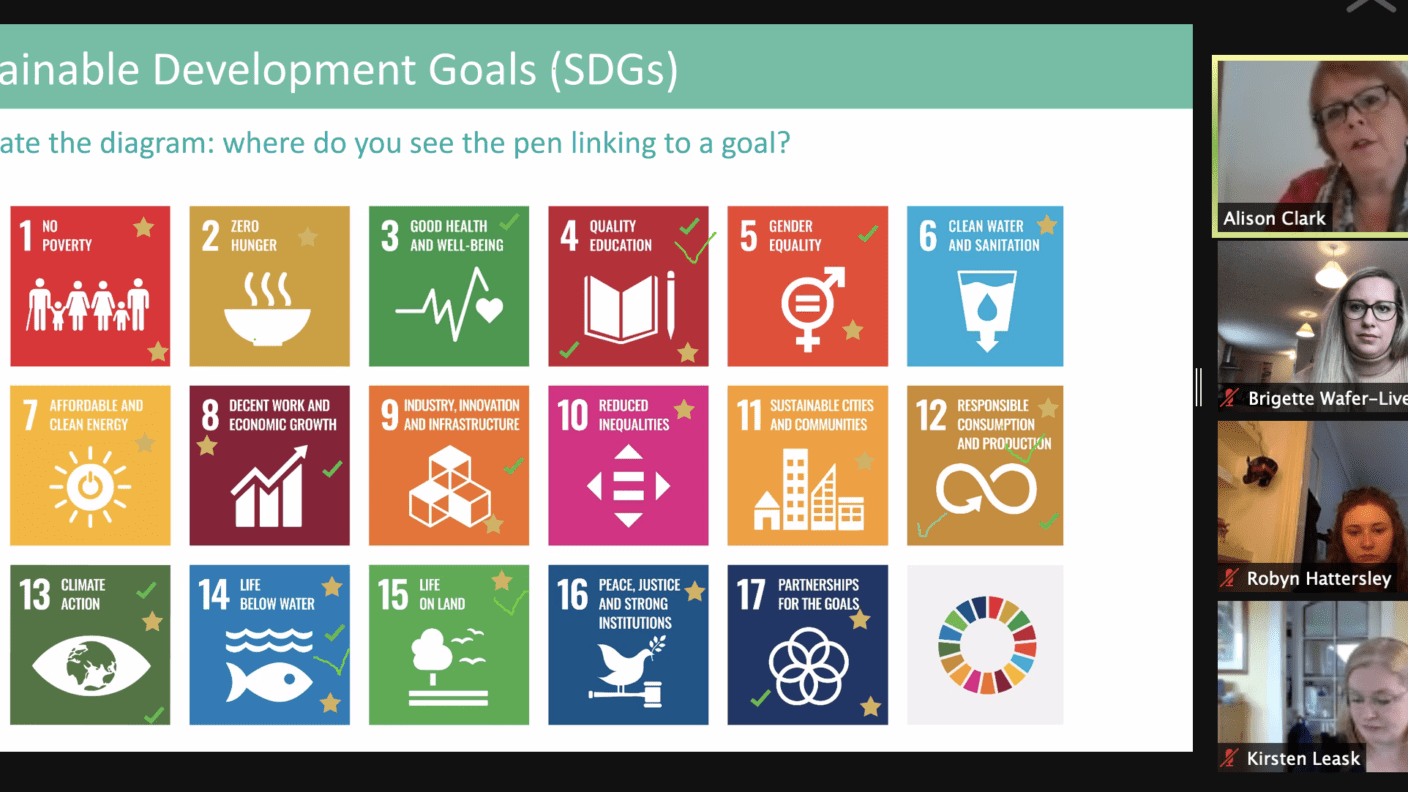Robyn Hattersley is the Councillor for Thatto Heath Ward, part of St Helens Borough Council. Robyn is also training to be a teacher at Liverpool Hope University, where she was initially introduced to the United Nations Sustainable Development Goals (SDGs) as part of Wider Perspectives in Education, an integral part of her course. Inspired by the aspirations of the 17 global goals, Robyn participated in a webinar on implementing the SDGs at local level in September 2020 in her capacity as councillor and began to think about how St Helens Borough Council could engage with the Sustainable Development Goals.
She submitted a motion for St Helens Borough Council to aid and support sustainable development. On the motion, Councillor Hattersley said:
“Many of these global challenges addressed in the UN Sustainable Development Goals affect our council directly including poverty, inequality, and environmental degradation.
We must engage thoroughly with the UN SGDs as they lay the foundations for a more sustainable way to positively develop the borough. It is vital that all levels of government work together and the Council believes that local government is a key component to successful implementation of the SDGs.”
The Council unanimously agreed to pass the motion, resolving to:
1. Create a tracking document wherein the Council can monitor progress on the SDGs and map the targets that are relevant to the borough’s priorities, using the LGA and UKSSD Sustainable Development Guide.
2. Formalise their commitment to the SDGs by following and adhering to the tracking document in subsequent policy making.
3. Ensure that all council reports and policy papers include an SDG assessment, indicating which goals will be met by the adoption of the recommendations within the reports.
4. Lobby central government for them to recognise the vital role local government must play in terms of the planning, implementation and monitoring in local areas, and fully resource councils to do that work, to deliver the UK’s progress on meeting the ambitions of the 2030 Agenda.
Andrea Bullivant, Global Learning Adviser at Liverpool World Centre, commented:
“The InterCap project aimed to engage different sectors in dialogue about the best way to respond to issues such as migration and sustainable development, using the SDGs as a way to approach this more coherently. Whilst recognising that the SDGs are global goals, InterCap provided a vehicle to engage local policy makers and stakeholders with their responsibilities for the SDGs at local level.”
The webinar was part of a series on Policy Coherence for (Sustainable) Development organised by LWC as part of the InterCap EU project. To find out more about the InterCap project and access training modules visit the InterCap website.
